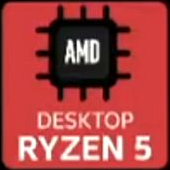At what temperature does a GPU/CPU start thermal throttling?
-
Featured Topics
-
Topics
-
Shidaro ·
Posted in Troubleshooting0 -
0
-
bad at PCs ·
Posted in Troubleshooting0 -
Nena Trinity ·
Posted in Troubleshooting0 -
anirudthelinuxwIzard ·
Posted in Console Gaming0 -
10
-
0
-
0
-
4
-
Blasty Blosty ·
Posted in LTTStore.com Merch5
-
-
play_circle_filled

Latest From ShortCircuit:
I'm a Huge Sucker for a Cool Gimmick - Epomaker DynaTab 75X & DynaTab 75
-
play_circle_filled

Latest From Mac Address:
The Apple Vision Pro Leaves a Mark (but not the right kind)















Create an account or sign in to comment
You need to be a member in order to leave a comment
Create an account
Sign up for a new account in our community. It's easy!
Register a new accountSign in
Already have an account? Sign in here.
Sign In Now